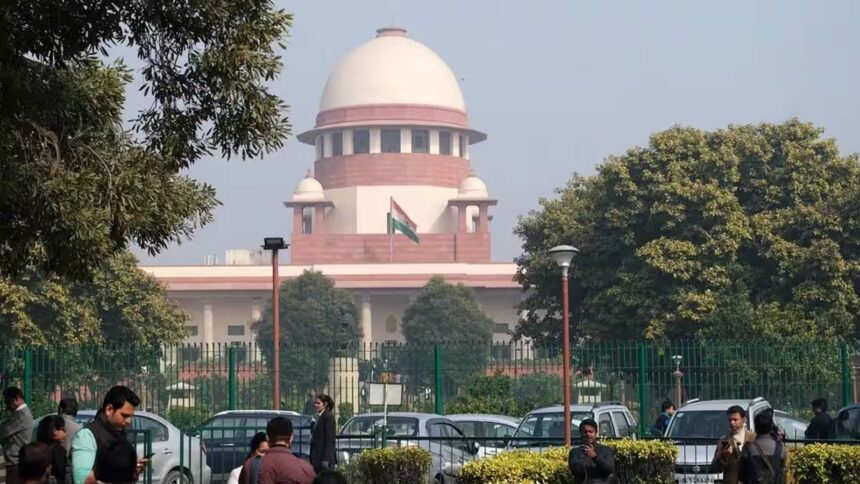Taking into account factors like “flight risk” and “risk of witness tampering or elimination”, the Supreme Court Tuesday rejected the bail plea of an accused facing charges under UAPA for his alleged role in the smuggling 2,988.21 kg of heroin worth over Rs 21,000 crore from Afghanistan to India.
Opposing his bail plea of Harpreet Singh Talwar alias Kabir Talwar, a resident, the NIA had said the narcotics was trafficked to India “disguised as legal imports in the form of “semi-processed talc stones and bituminous coal” and “the proceeds… sent back to the consigners, who used these funds for funding terrorist activities of Lashkar-e-Taiba (LeT)”. It said that “the narco-traffickers were located in Afghanistan and were sending heroin via Iran and Pakistan to India (with help of ISI & Iranian middle men)”.
In September 2021, the DRI had intercepted the heroin consignment at Mundra port and NIA took over the probe. As per the investigators, a total of 6 consignments were imported in India, sent by the same consigners from Afghanistan. The one intercepted at Mundra was the 6th consignment. Talwar was arrested by NIA in August 2022.
A bench of Justices Surya Kant and N K Singh said that “the appellant faces serious charges, which allegedly carry grave societal ramifications, including the facilitation of cross-border drug trafficking… The scale and sophistication of the operation, involving foreign syndicates, shell firms, medical visas, and false documentation, elevates this case far beyond routine NDPS violations”.
The bench, however, said that “at this stage, it would be premature and speculative to extend the allegations against the appellant to the domain of terror financing”. “While the prosecution has invoked provisions of UAPA and has broadly linked the smuggling enterprise to trans-national syndicates with suspected affiliations, there is no compelling reason to currently link the appellant and proscribed terrorist organisations, either within or outside the country. The evidentiary foundation to sustain such a grave allegation must be clear and compelling — something that can be seen only after a substantial portion of evidence is led by both the parties,” it said.
The bench also took note that “multiple key witnesses still remain to be examined, and the trial while underway, will take time in completion. Out of 24 most vulnerable or material witnesses, two have died, and two others are untraceable. One of the deceased witnesses, a retired customs officer, was found dead on the very day he was scheduled to record his statement under Section 164 CrPC. The risk of witness tampering or elimination — whether directly attributable to the appellant or not — is a real and present concern that militates against the grant of bail at this stage.”
The SC also directed the special court to list the matter twice in a month and record statements of prosecution witnesses.
The court gave Talwar liberty to renew his bail prayer after six months or upon substantial advancement in the trial, whichever is earlier. It also asked the NIA to submit to the special court an additional list of witnesses who, in its assessment, are sensitive, or material, inasmuch as their testimony may have a direct bearing on the role of the accused or other co-accused in the ongoing trial and probe.








